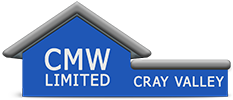
Introduction
In the realm of DIY and home improvement, the importance of selecting suitable screws and fixings cannot be overstated. Whether you're embarking on a simple repair or a full-scale renovation, having the appropriate hardware can make all the difference in the success and longevity of your project. From hanging a picture frame to constructing a deck, the devil is in the details regarding fasteners. In this comprehensive guide, we'll delve into the world of screws and fixings, exploring their various types, applications, and the key factors to consider when choosing the perfect ones for your project.
Understanding Screws and Fixings
Before we dive into specifics, let's first understand the fundamental roles screws and fixings play in construction and DIY projects. Screws are threaded fasteners designed to join materials together by pulling them tight. Fixings, conversely, encompass a broader category of fasteners, including nails, anchors, bolts, and more, each serving a distinct purpose in securing objects to surfaces.
Types of Screws
Wood Screws: Primarily used for fastening wood to wood or wood to metal, these screws feature coarse threads and a sharp point for easy penetration into wood.
Drywall Screws: Explicitly designed for fastening drywall to studs, these screws have fine threads and a bugle head to prevent tearing of the paper surface.
Sheet Metal Screws: With sharp threads and a flat or pan head, these screws are ideal for attaching metal sheets to various surfaces.
Machine Screws: These screws have uniform threads and are often used with nuts or tapped holes in metal surfaces.
Self-Tapping Screws: Equipped with a drill-like point, self-tapping screws are designed to create their threads as they are driven into materials like plastic or metal.
Types of Fixings
Anchors: Used to securely fasten objects to materials like concrete, brick, or stone, anchors come in various forms, such as expansion anchors, sleeve anchors, and wedge anchors.
Nails: Versatile and straightforward, nails are commonly used for framing, carpentry, and general construction tasks.
Bolts: These threaded fasteners, nuts, and washers provide robust and adjustable connections for heavy-duty applications like machinery assembly and structural construction.
Wall Plugs: Also known as wall anchors or dowels, wall plugs are inserted into drilled holes to provide a firm anchor point for screws in materials like plasterboard or masonry.
Choosing the Right Screws and Fixings
Selecting the appropriate screws and fixings for your project depends on several factors, including the materials being joined, the load-bearing requirements, environmental conditions, and aesthetic preferences. Here are some essential considerations:
Material Compatibility: Ensure that the screws and fixings you choose are compatible with the materials you're working with. For example, use corrosion-resistant screws for outdoor projects exposed to moisture.
Load Capacity: Consider the weight and stress the fasteners will bear. Opt for heavy-duty fixings for load-bearing applications and lighter-duty options for decorative or temporary installations.
Length and Diameter: Choose screws and fixings of sufficient size and diameter to penetrate the materials adequately and provide a secure hold.
Head Type: Select the appropriate head type for your application, whether countersunk for flush mounting or pan head for more excellent surface contact.
Installation Method**: Follow manufacturer guidelines for proper installation techniques to ensure optimal performance and longevity of the fasteners.
FAQs
What are the most common types of screws and fixings?
The most common types include wood screws, drywall screws, sheet metal screws, anchors, and bolts.
How do I choose the suitable screws and fixings for my project?
Consider material compatibility, load capacity, length and diameter, head type, and installation method.
Can I use the same screws for different materials?
It's essential to match the screws and fixings to the specific materials you're working with to ensure optimal performance and longevity.
Are there specialized screws for outdoor projects?
Yes, corrosion-resistant screws are recommended for outdoor projects exposed to moisture and harsh environmental conditions.
What is the difference between screws and fixings?
Screws are threaded fasteners used for joining materials together. At the same time, fixings encompass a broader category of fasteners, including nails, anchors, bolts, and more, each serving a distinct purpose in securing objects to surfaces.
Conclusion
In construction and DIY projects, the devil is truly in the details when it comes to selecting the suitable screws and fixings. By understanding the various types available and considering factors such as material compatibility, load capacity, and installation method, you can confidently transform your space, knowing that your projects are built to last. So, whether you're hanging a picture frame, building a deck, or tackling a full-scale renovation, choose your screws and fixings wisely, and watch as your vision takes shape, one fastener at a time.
If you want to take a closer look at our range of screws and fixings, click here. If you want to contact or find out more about this blog posts author, Dave click here.
